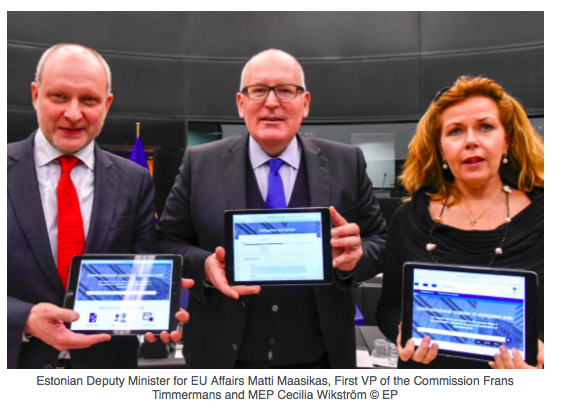Open Law Making Wins Again
Yesterday evening, 1st Vice-President Frans Timmermans, struck another blow for open law making.
Until today, the process for adopting delegated acts was a secretive affair. Today, you can track the development, adoption and scrutiny of delegated acts.
You can find out how to here.
This is important because most legislation in the EU – estimates argue between 97% to 99% – is secondary legislation. The important secondary legislation is often delegated acts.
For members of the public the whole process has been more or less secret. I think that the people should be able to monitor their governments law making. These changes make it easier for the people to see what is being done in their name
Today’s system is a vast improvement. It gives a good summary of the status of where a piece of delegated legislation is. You can track the progress from the comfort of your own armchair.
The spirit of Better Law Making has not yet filtered down to all Commission Departments. The idea of making up legal proposals on a whim, whatever or despite the evidence, still has many adherents within the Commission and in too many governments. Better Regulation, championed by Commissioner Timmermans, forces his colleagues to meet some basic standards of good law making before coming up with new laws. I know many officials do not like it.
I think a lot of lobbyists won’t like it. Anything that makes the system less complex is bad for billable hours.
The EU is not the place to have policy and political decision making by way of political derogation. Following the Better Regulation Guidelines and Toolbox for bother ordinary and secondary law making is one of the greatest incentives Europe has to offer business doing business here.
I think that the positive lasting legacy of the Juncker Commission will be the step by step opening up of law making to public scrutiny and improved and better law making.
Next Steps?
There are some improvements that could be made.
First, they could hyperlink to the actual text being considered.
Second, they could integrate creaking online system for Implementing Acts and measures adopted under Regulatory Procedure into this easier to use system.
Third, they could list the civil servants who attend the Committee. They are meeting as law makers. It is usual for law makers to be recognised when they vote. The meetings could be online.
All these changes could be made quickly.
Dank U
Commissioner Timmermans and his team have worked around the clock to deliver on the 13 April 2016 Better Law-Making Interinstutional Agreement*. The system works.
* para 29: The three Institutions commit to set up, at the latest by the end of 2017 and in close cooperation, a joint functional register of delegated acts, providing information in a well-structured and user-friendly way, in order to enhance transparency, facilitate planning and enable traceability of all the different stages in the lifecycle of a delegated act.
